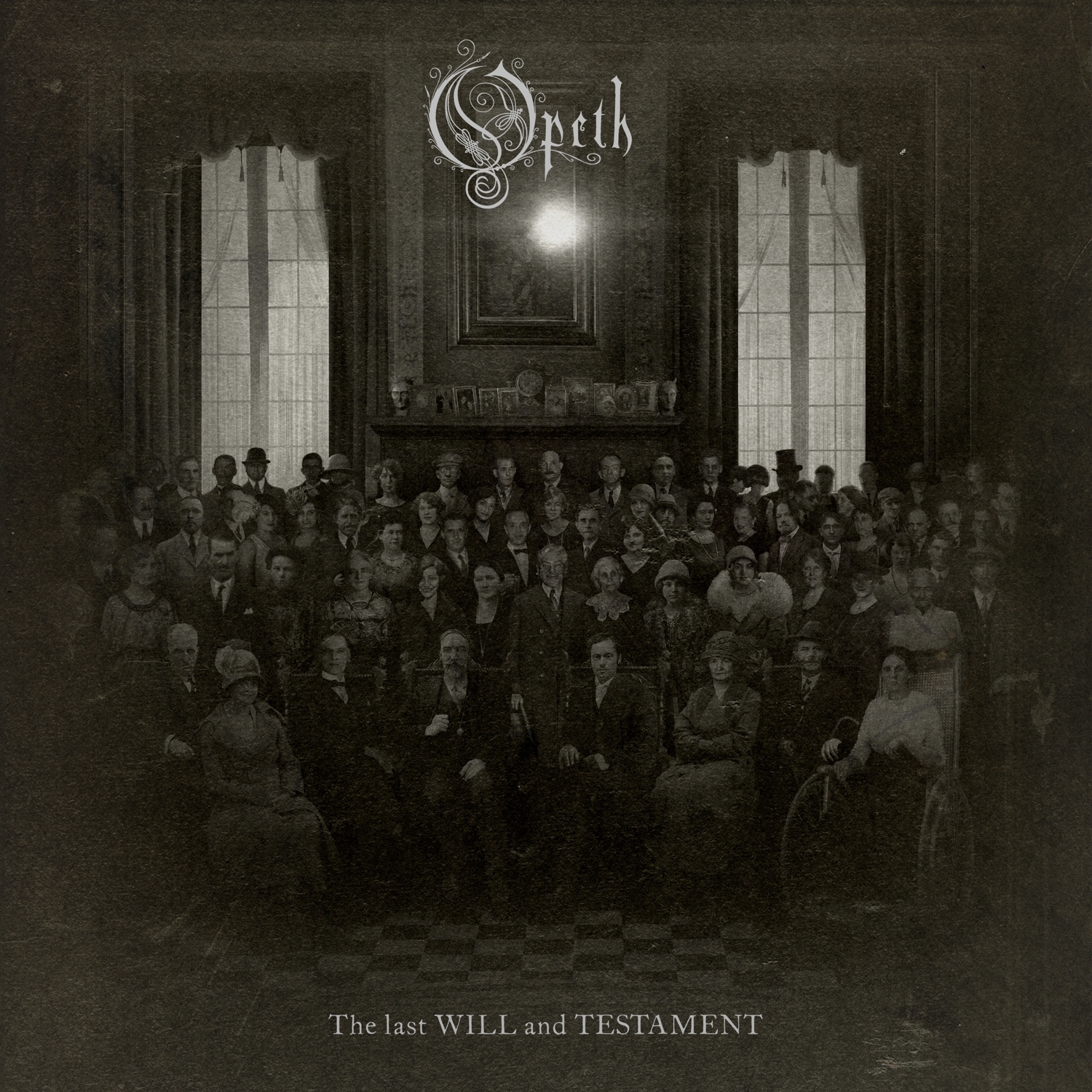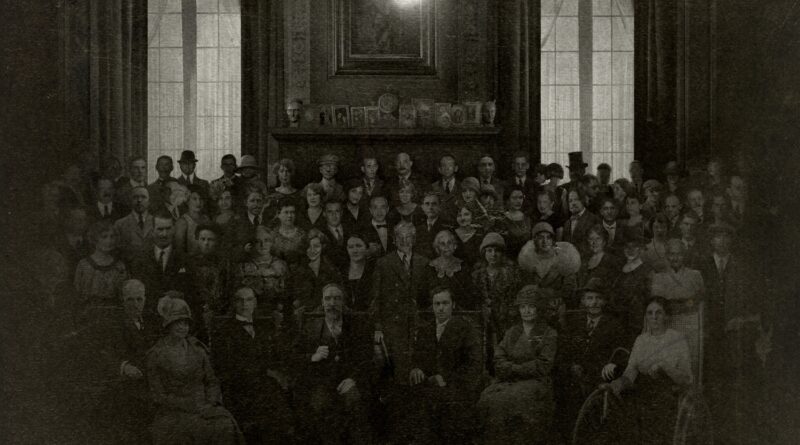ALBUM REVIEW: The Last Will and Testament – Opeth
After more than three decades as one of the super heavyweights in the global progressive metal scene, Swedish legends OPETH need no introduction. Never ones to repeat themselves, they have trained their passionate fans to always expect the unexpected, no statement is truer with the release of their fourteenth studio album The Last Will and Testament. This is a landmark album for the Swedish quintet – not only is it the band’s first out-and-out concept album – it also features their new drummer Waltteri Väyrynen who joined in 2022 and very special guest features from JETHRO TULL’s Ian Anderson and EUROPE’s Joey Tempest.
The Last Will and Testament is without a doubt the band’s heaviest album to date, but also the most progressive. It’s been a long five years since In Cauda Venenum, but this is more than worth the wait. Of course, the most obvious thing that has excited many fans about this album is that it features death growls on an OPETH release for the first time since 2008s Watershed. However, the album is so much more than the return of the death growls.
The idea behind the albums dark, complex and chilling concept was first alluded to on the album’s 2019 predecessor In Cauda Venenum. However, the idea stuck around in Mikael Åkerfeldt’s head, he became interested in how family members can turn on each other and how someone’s family turned on them regarding their inheritance. Alongside the TV series Succession, the foundation was laid for The Last Will and Testament. With that in mind, it meant that the band have been able to go overboard with the music, and to go heavier, so they can capture the darkness of the story being told. Yet, it’s also their most progressive album, featuring string segments, spoken word, flute solos and haunting, ghostly operatic vocals.
The story itself focuses on the themes of legacy, deception, regret, and the search for identity. It is based around the reading of a recently deceased patriarch of a family, and throughout the album Åkerfeldt’s poetic lyrics represent the ramblings of the dying man’s will. As the family secrets unfold with an ample amount of melodrama, the ramblings give us a haunting, grotesque and introspective look inside a troubled man’s mind and the consequences of his actions on his family. There is a real evil and sinister shadow surrounding The Last Will and Testament, as it looks into the most repulsive parts of human behaviour and how secrecy, betrayal and greed can tear families apart, especially when someone passes away.
Musically, there is just as much to unpack as the album’s concept. OPETH have certainly gone all out on this album. The best way to describe it is a frenzy of correlating and cohesive ideas all coming together at once, it creates an intense and unforgiving atmosphere. It feels like you are in the room with the family where the will reading is taking place. You can cut the tension with the knife. OPETH’s musicianship is simply astounding and Åkerfeldt’s is sounding stronger and more youthful than ever, it is hard to believe he’s doing such high standard death growls at 50 years old.
The album’s songs don’t have titles – with the exception of closing track A Story Never Told – and are instead organised into chapters/paragraphs. The album is also punctuated with sound effects to give it a cinematic feel. §1 opens the album and sets up the story, as everyone gathers around for the reading. The song is a shadowy and intense, and sets the tone for the album in the most frantic way possible, as well as featuring an Anderson flute part. That fades into §2, which starts ominously with a quiet organ part before launching into a bombastic riff Ghost of Perdition style. This is also the first track where Anderson does his first spoken word piece accompanied by vocals from Tempest. Both the first two tracks have prominent death growls, however §3 is a bit more melodic, and groove laden, with tempos and time signatures seemingly changing with every bar. It seems to chart the frenzied thoughts of the family and finishes with a climatic ending.
§4 is a track that feels foreboding, claustrophobic and heated as more of the family secrets are unveiled. The song seems to be building constantly and spiralling out of control for the first half but the descends into this ominous and lusciously prog section that climaxes with the frenzied riffs that were present at the beginning. §5 follows a similar formula and is intent on disorientating you as you get caught up in the tensions between the family members. §6 and §7 feel like two sides of the same coin, ebbing and flowing between monstrously heavy riffs, blistering solos and growls to eerie, creepy prog sections that include acoustic guitar and synth passages. The album closes with A Story Never Told, and the big reveal does not disappoint. Stripped back and like OPETH of the Pale Communion/Sorceress era, the track relieves all the tension with luscious, oddly sinister melodies and a blistering solo as the story concludes with all those present left in shock.
As you can see, The Last Will and Testament is a jam packed and weighty album. However, it is the monumental return of one of progressive metal’s finest bands.
Rating: 9/10

The Last Will and Testament is set for release on the 22nd November via Reigning Phoenix Music.
Like OPETH on Facebook.


While I agree that this is a very good album, some aspects of the review are a bit off base or misguided. It is not their first concept album (My Arms, Your Hearse and Still Life both have an over-arching concept). Nor it their heaviest album (Deliverance is far heavier, to name but one).